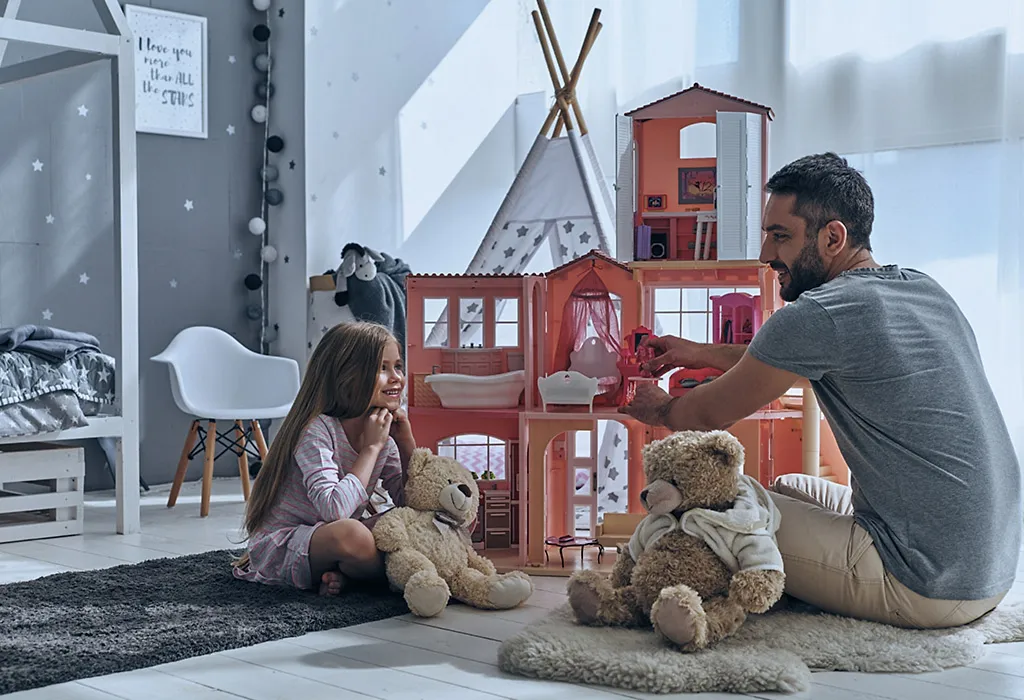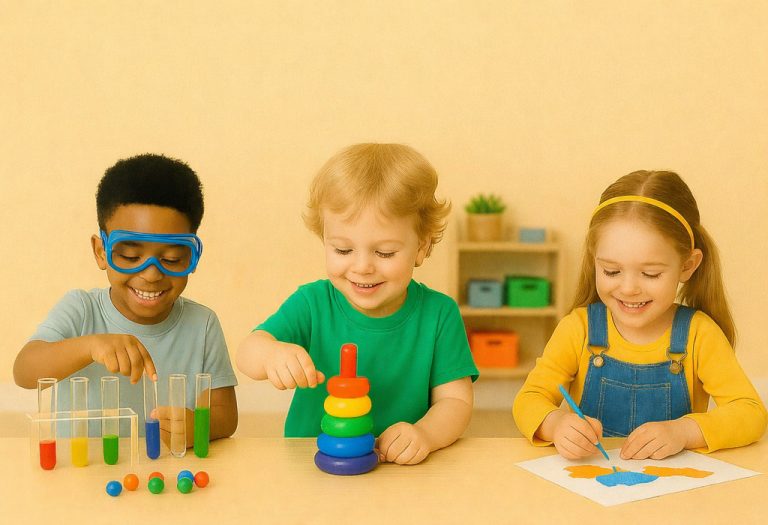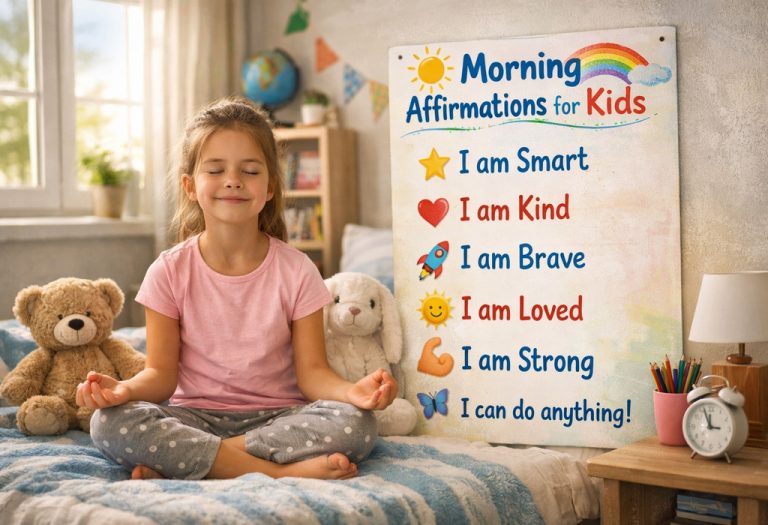20+ Fun Listening Games, Activities, and Exercises for Kids
Asking your kid actually to listen to what you say is a tough task, isn’t it? All the mothers reading this article seem to be nodding in the affirmative. You may feel that child-bearing and child-rearing are no fun, but things can be different. Every kid loves games and activities. If one can weave some learning into it through listening games for children, your child’s listening skills can improve dramatically. In this article, you’ll find 21 fun listening games, activities, and exercises that help kids become better listeners. These games are easy to play and great for home, school, or anywhere kids are learning and growing.
Importance of Listening Skills for Kids
Listening is more than just hearing sounds, it’s about truly understanding and connecting with what’s being said. In early childhood, developing strong listening abilities helps children concentrate, follow directions, and express themselves clearly. These skills form the basis for learning in the classroom and building relationships with others.
Best Listening Activities for Children
You can gain valuable insight about your child’s deepest thoughts through listening activities for kids. It allows better bonding with the kid and helps a parent to understand the child better. Check out these active listening activities for students that are easy to organise and very effective too:
1. Become the Boss
This activity allows your child to become the boss during playtime for a limited duration. During this period, the child can tell you how to play and with which toys to play. Through this activity, you can know how your instructions are being perceived. It is also an opportunity to showcase listening skills to your child by doing it yourself.
2. Blindfold Walk
This activity will help kids to listen to and understand instructions to complete a certain task. Blindfold your child and ask him to listen to your directions to reach a specific place. Use instructions like “go forward/ backwards three steps, turn left right or go straight”. The destination can consist of a toy or some goodies as an incentive for the kid.
3. Dolls at Play
Take a couple of dolls from your child’s collection and sit down to play. In this activity, one doll becomes the mother while the other plays the child. Practice talking and listening while playing with the dolls. Use a typical scenario at home so it is easy for the child to identify and she can take the lead. Parents can proactively use such activities to develop listening skills in children.
4. Listen and Draw
One can use the drawing activity to build listening skills. Describe a picture to the child in great detail and ask her to listen carefully. Then handover some drawing sheets and crayons and tell her to draw what you described. Encourage her to ask questions if she isn’t clear. Describe simple images to young kids and detailed ones to older children.
5. Telephone
Whisper words or short sentences into your child’s ears and ask her to repeat it in your ear. Make it funny and exciting, so your kid enjoys the activity. Share silly stories or entertaining anecdotes which your child can understand and repeat. Tweak the game according to the age of your child.
6. Sound Hunt
Take your child on a “sound hunt” around the house or outside. Ask them to close their eyes and identify various sounds they hear, like birds chirping, a clock ticking, or water running. This helps them focus and sharpen their auditory attention.
7. Musical Freeze
Play music and have your child dance. When the music stops, they must freeze immediately. This game builds attention and reaction skills. For added challenge, give specific actions to perform when the music stops, like “freeze with your hands in the air.”

Awesome Listening Skills Games for Kids
Listening is an important life skill that helps children to understand and recall classroom study. It teaches them to follow directions and exercises their brain in many ways. The following listening skills games are built to teach all this and more:
1. Guess Who
This game is used to promote language and perception. By using a recording of animal sounds or making one yourself, ask the child to identify the animal. Show an image of the animal so that their learning is reinforced. The connection between sound and image is thus strengthened. Play a few animal sounds in a loop and reward the child who remembers it in the right sequence.
2. Copycat
Listening skills can be enhanced by improving your child’s ability to comprehend rhythmic or repetitive patterns. Try clapping in different ways and ask the child to repeat it for you. If you have 4 or 5 children with you, whisper a sentence in a child’s ear and ask him to repeat it to the next and so on. Ask the last kid to speak the sentence aloud. The sentence may have changed a lot, and this underlines the importance of listening properly.
3. Hide and Seek
One of the most critical listening concepts is related to following directions. Hide your child’s favourite toy or a treat and help your child to locate it by providing verbal cues. Give simple directions and reiterate that if they listen well, they will be able to find the treasure. Send a message that if they listen actively, they can use the information that will lead to success.
4. Simon Says Remixed
The importance of focussing on the spoken word and following directions is wonderfully emphasised in this game. Begin with something like “Simon says touch your knees” and then say stand on one leg. Those who follow the second instruction lose. This will teach kids to listen to the entire directions and will reinforce effective listening.
5. End of the Word Is the Beginning of the Next
This is a straightforward yet fun game that toddlers enjoy. Your child will have to listen carefully to the word the previous child says. She will have to come up with a word that begins with that word’s last alphabet. For example, Tiger…right…tree..elephant..and so on. Watch your child hang on to every word being spoken. This teaches great listening skills.
6. Red Light, Green Light
One child is the “traffic light” and calls out “green light” (go) or “red light” (stop). The other kids must respond correctly and quickly. This helps children learn to listen carefully and control their impulses.
7. Mystery Sound Box
Place various objects in a box and shake it to create a sound. Kids listen carefully and guess what object is making the noise. This game boosts attention and sound recognition.
Listening Skills Exercises for Children
To communicate effectively with people during their adult life, kids need to understand active learning skills early. This not only benefits him during school life but has a positive impact on his social life. This is possible through active listening exercises for kids and helps them in identifying and practising these important skills. Use these activities to lay a powerful foundation of communication for your child:

1. Become a Role Model for Your Child
Ensure that you are maintaining eye contact with your child when he or she is speaking to you. This will lead to him doing the same while you speak to him. Repeat what your child says to you to reiterate that you understand him. When you become a model listener, it prompts the child to do the same with you and with others.
2. Practice Repetition of Conversation
After you have given certain instructions to your kid, ask him to repeat the same to you. For example, if you have asked him to clean his room, empty the wastebaskets and have a bath, tell him to repeat these three instructions. It allows him to process those instructions and also tells you if he has listened to what you said.
3. Initiate a Conversation
When you have a conversation with your child, make sure the topic is of interest to him. If you want a real conversation to happen, a topic of his/her choice will allow the child to express itself in a better way. Since the topic is close to his heart, the discussion will have a purpose for him. This will encourage active listening as he will be eager to know what you have to say about it.
4. Read Stories and Ask for Predictions
Surely you must be reading out bedtime stories to your tiny tot. This time, however, give it a slight twist by asking your child to predict the next step. If the child has to make a guess, he will have to listen to your story well and hang on to every word you say. You can even ask your kid to retell the story in his own words to check if he has understood it. Another way of checking if the child has been actively listening is to ask him to use his toys to tell the tale again. He will be able to act out the story only if he has heard and understood you properly. You can include stories with morals for initiating moral development in kids.
5. Group Story-Telling Sessions
Gather your child’s friends at your home or in the park for a unique story session. One child begins the story, and the next one has to add a few sentences to the story. This has to make some sense and will go on till the turn reaches the first child. This exercise will enhance listening skills since your child will have to pay attention to what everyone else is saying. Help those who are stuck but do not narrate the entire segment. You could also ask the kids to act out certain segments to make the whole narration interesting.
6. Give Multi-Step Instructions
Ask your child to perform tasks that involve several steps, such as “Please pick up your toys, put your shoes away, and then come to the table.” After giving the instructions, encourage your child to repeat them back to you before starting. This exercise helps improve their ability to listen carefully, process information, and remember instructions in order.
7. Ask Open-Ended Questions
After telling a story or giving information, ask your child questions that require more than a yes or no answer, like “What did you like most about the story?” or “How would you feel if you were the character?” This encourages your child to listen attentively and think deeply about what they heard.
FAQs
1. What age group benefits most from listening activities?
Listening activities are beneficial for children of all ages but are especially important for toddlers and early elementary school kids as they build foundational language and social skills.
2. Can listening games improve a child’s academic performance?
Yes, strong listening skills enhance a child’s ability to follow instructions, understand lessons, and participate in classroom discussions, all of which contribute to academic success.
3. What are some effective listening games for preschoolers?
Listening games for preschoolers should be simple and interactive. Popular options include “Simon Says,” “Freeze Dance,” “Animal Sounds,” and “Storytime Questions.” These games help young children develop focus, follow directions, and improve their understanding in a fun, age-appropriate way.
It is certainly no secret that listening skills are the key to becoming a great communicator. This critical art can become an essential asset in school, college and adult life. It will also help you to bond with your child especially since you will be playing and doing some truly crazy stuff with your child. This helps to lighten the child’s mood while improving his listening skills without any significant effort.
Also Read:
How to Make Kids Listen To You
Best Literacy Games for Kids
Fun Family Conversation Games
Interactive Music Games for Kids
Was This Article Helpful?
Parenting is a huge responsibility, for you as a caregiver, but also for us as a parenting content platform. We understand that and take our responsibility of creating credible content seriously. FirstCry Parenting articles are written and published only after extensive research using factually sound references to deliver quality content that is accurate, validated by experts, and completely reliable. To understand how we go about creating content that is credible, read our editorial policy here.






















